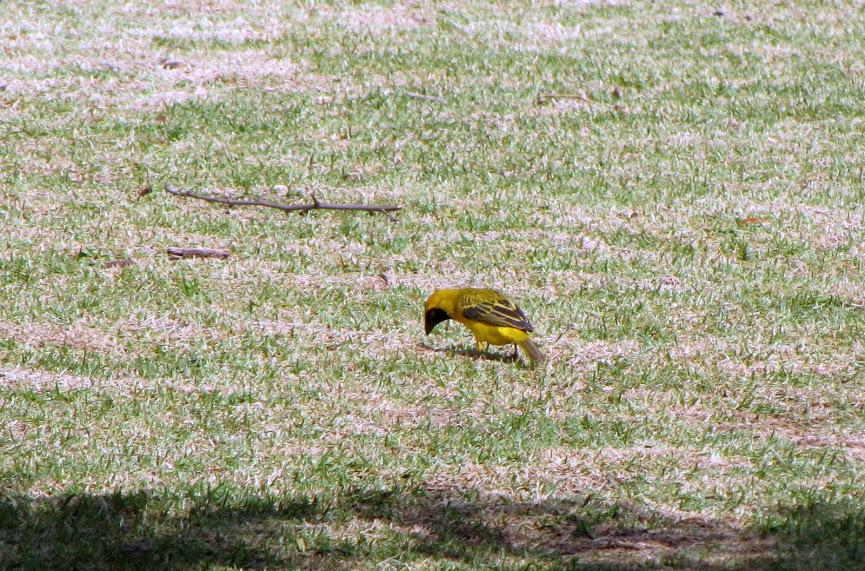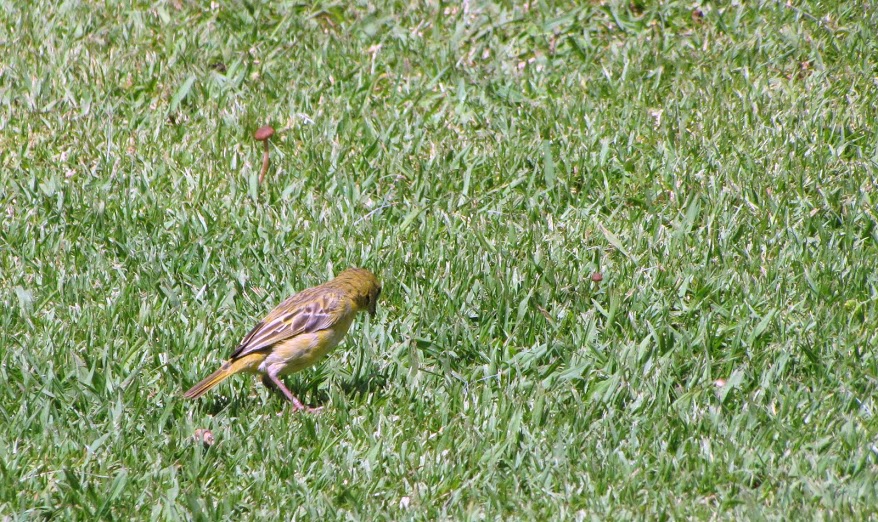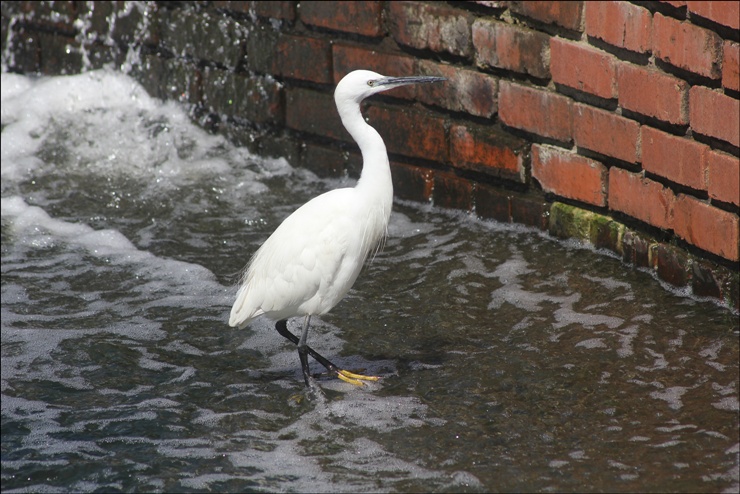Page 2 of 12
White-breasted Cormorant - 20 Points
Posted: Sat Nov 16, 2013 8:42 pm
by Amoli
055.
White-breasted Cormorant P
halacrocorax lucidus

by Amoli

by Flutterby
Reed Cormorant - 20 Points
Posted: Sat Nov 16, 2013 8:45 pm
by Amoli
058.
Reed Cormorant Microcarbo africanus

by Amoli

by Flutterby
Juvenile

by Lisbeth
African Darter - 20 Points
Posted: Sat Nov 16, 2013 8:48 pm
by Amoli
060.
African Darter Anhinga melanogaster

by Amoli

by Flutterby
Black-headed Heron - 40 Points
Posted: Sat Nov 16, 2013 8:50 pm
by Amoli
063.
Black-headed Heron Ardea melanocephala

Southern Masked-Weaver (Masked Weaver) - 20 Points
Posted: Sat Nov 16, 2013 9:03 pm
by Toko
814.
Southern Masked-Weaver (Masked Weaver) Ploceus velatus
Identification
Length: 11-15 cm, mass 29-45 g. Males larger than females
Breeding male: Black face, throat and beak, red eye, bright yellow head and underparts, plain yellowish-green back, short, strong, conical bill and pink brown legs.
Adult female and non-breeding male: Pink-brown bill (not grey contra one field guide), brown or red-brown eye. Upper parts yellow-olive, streaked darker on the upper back, yellow throat fading to off-white on the belly. The non-breeding male resembles the female but retains the red eye.
Juvenile: Similar to the female.
Video of Breeding Male:

by Toko
Breeding Male

by Amoli

by Lis
Female

by Flutterby

by Lis
Egyptian Goose - 20 Points
Posted: Sat Nov 16, 2013 9:37 pm
by Toko
102.
Egyptian Goose Alopochen aegyptiaca
Identification
A large, distinctive, pale-coloured waterbird which is easily recognised by the conspicuous dark chocolate-brown patch around its eye. The head and neck are pale buff, and there is another dark brown patch around the base of the beak, usually joined to the eye patch by a narrow line.
It has buff-coloured underparts, which become paler on the flanks and belly, and a variable but distinctive chocolate-brown patch on the lower breast. The upperparts usually vary from reddish- to grey-brown, with a black back, rump and tail, while the crown and back of the neck may show dark mottling, sometimes appearing reddish-brown. There is a narrow, dark reddish-brown collar around the base of the long neck. The ends of the wings are black and bear an iridescent green speculum, which is separated from the contrasting white forewings by a narrow black line. It has pinkish legs and feet, which become redder in the breeding season. The eyes are orange and the beak is pink, with a black tip, black nostrils and black edges.
The female resembles the male, but is smaller and often has darker markings on the beak. Juvenile Egyptian geese are duller in colour, with a grey tinge on the forewings, a darker crown and neck, and a yellowish beak and legs. Juveniles also lack the distinctive dark eye and breast patches of the adult.
Video by Toko:


by Dewi

by Flutterby

by Amoli

by Lisbeth
Little Egret - 20 Points
Posted: Sun Nov 17, 2013 12:24 pm
by Amoli
067.
Little Egret Egretta garzetta
Identification
64 cm; sexes alike. Black bill, black legs and bright yellow feet (non-br) distinctive.
Breeding adult: Eyes and legs orange to red.
Juvenile: Base of bill and lower legs may be greenish.

by Amoli

by Flutterby
Cattle Egret - 20 Points
Posted: Sun Nov 17, 2013 12:26 pm
by Amoli
071.
Cattle Egret Bubulcus ibis
Identification
54 cm; sexes alike. Smallest of the white egrets.
Beeding adult: Develops rufous plumes and dorsal aigrettes; bill orange or red, and legs shades of red.
Non-breeding adult: Lacks rufous plumes; bill, lores and eyes yellow.
Juvenile: Bill, legs and feet black.

by Amoli
Breeding plumage

by Flutterby
Non-breeding

by Lisbeth

by steamtrainfan
Black-crowned Night-Heron - 40 Points
Posted: Sun Nov 17, 2013 12:27 pm
by Amoli
076.
Black-crowned Night-Heron Nycticorax nycticorax
Identification
56 cm; sexes alike. With thickset, short-legged appearance, and black, white and grey plumage, confusion unlikely with any other heron in region.
Juvenile: Larger than juvenile Green-backed Heron, white spotting on upperparts more prominent.

Immature
Hamerkop - 40 Points
Posted: Sun Nov 17, 2013 12:29 pm
by Amoli
081.
Hamerkop Scopus umbretta

 by Amoli
by Amoli by Flutterby
by Flutterby by Amoli
by Amoli by Flutterby
by Flutterby by Amoli
by Amoli by Flutterby
by Flutterby by Amoli
by Amoli by Flutterby
by Flutterby by Lisbeth
by Lisbeth by Amoli
by Amoli by Flutterby
by Flutterby
 by Toko
by Toko by Amoli
by Amoli by Lis
by Lis by Flutterby
by Flutterby by Lis
by Lis
 by Dewi
by Dewi by Flutterby
by Flutterby by Amoli
by Amoli by Lisbeth
by Lisbeth by Amoli
by Amoli by Flutterby
by Flutterby by Amoli
by Amoli by Flutterby
by Flutterby by Lisbeth
by Lisbeth by steamtrainfan
by steamtrainfan
